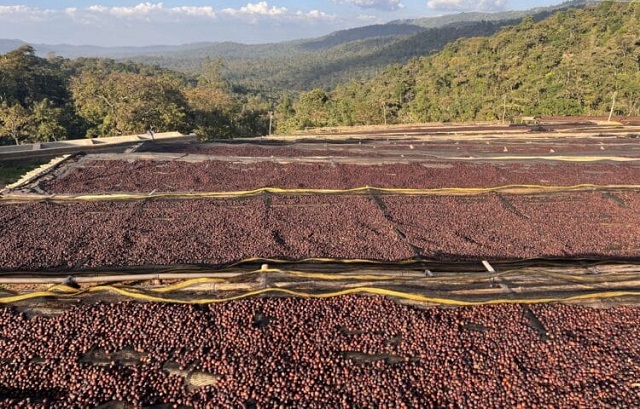
ANALYSIS | AGENCIES | Ethiopian Prime Minister Abiy Ahmed has announced a remarkable achievement: the country's annual coffee production has doubled from 500,000 tons to over 1 million tons in the past five years.
This milestone was celebrated during a national coffee exhibition and awareness forum held at the Ethiopian Science Museum. Prime Minister Abiy highlighted that coffee export revenues surged to over $1.4 billion in the last fiscal year, attributing this growth to enhancements in the macroeconomic environment and the coffee trade sector.
In his address, the Prime Minister reaffirmed the government’s dedication to improving coffee quality and production. He underscored the importance of collaboration among stakeholders, including farmers, cooperatives, and regional communities, to raise awareness and implement best practices in coffee cultivation.
Expressing optimism about reaching the target of 1 million tons in annual coffee production, Abiy stressed the need for continued efforts to enhance quality and market access. He noted that the Green Legacy Initiative, which focuses on coffee among other crops, has been instrumental in this growth.
The Prime Minister provided a comparative overview of coffee production: "Over the past five years, Brazil produced 3.7 million tons of coffee annually, while Vietnam produced 1.7 million tons. Previously, Ethiopia was producing less than 500,000 tons. However, following the Green Legacy Initiative, Brazil’s production has risen to 4 million tons, Vietnam to 2 million tons, and Ethiopia has successfully doubled its output to 1 million tons."
He emphasized the care required in coffee farming, likening it to nurturing a child, and urged Ethiopian farmers to give their crops the attention needed to boost productivity. "The efforts you've made in recent years are commendable. You have collectively contributed to the country earning $1.4 billion annually—an honorable achievement."
Additionally, Prime Minister Abiy addressed the significance of coffee quality, encouraging those involved in irrigation farming to adopt best practices. "Even smallholder coffee farmers should implement effective farming techniques. It's not just about purchasing but investing in cultivation that leads to higher productivity. By applying this expertise, you can significantly contribute, alongside the government, to improving yields on small plots of land."
At the event, the Prime Minister recognized outstanding farmers, exporters, and associations for their exceptional contributions to Ethiopia's coffee production and export trade, as reported by ENA.
With a clear vision and commitment, Ethiopia’s coffee industry is poised for further growth and success.











